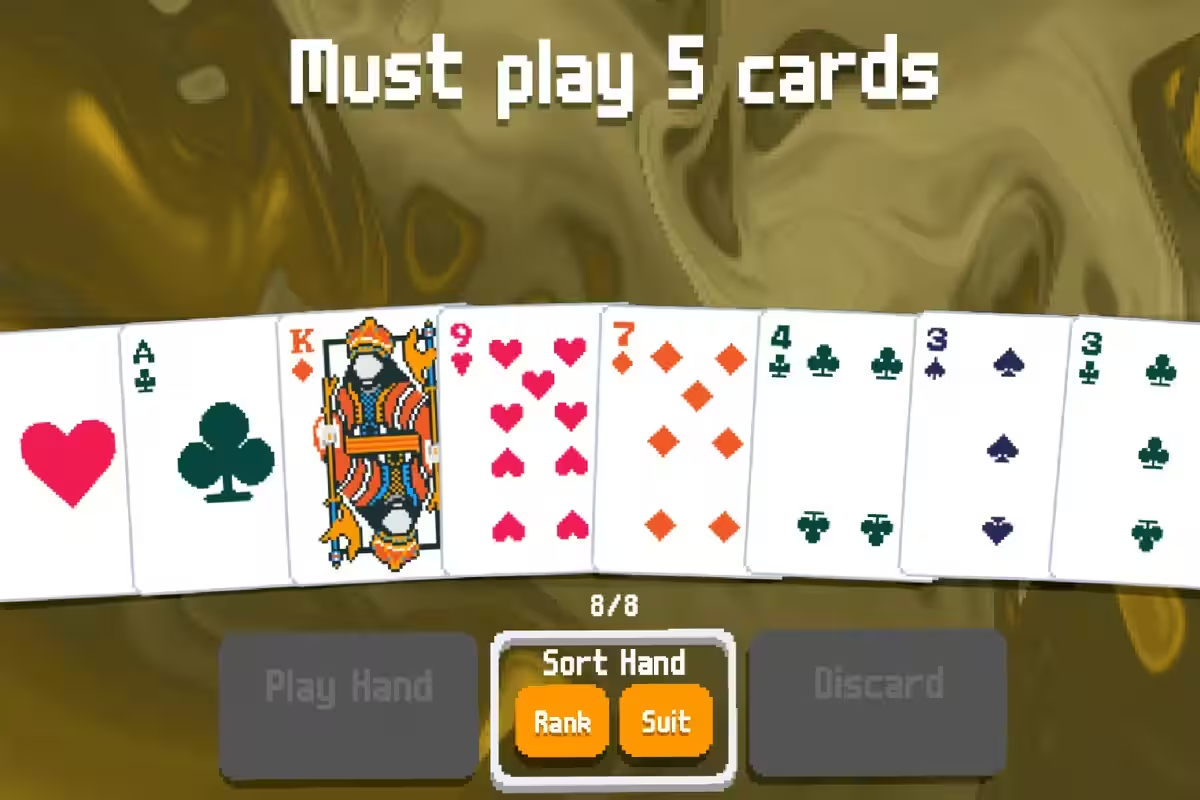Balatro creator unhappy with the game’s 18+ rating in Europe

The game Balatro, which combines elements of poker and roguelike, has sparked a wave of controversy after receiving an 18+ rating in Europe. Despite the game’s lack of real gambling content, European rating system PEGI claims that Balatro Balatro provides skills that can be applied to a real poker game. The game’s creator, known by the pseudonym LocalThunk, expressed disappointment with the decision.
Why did Balatro get an 18+ rating?”
.
According to PEGI, Balatro demonstrates “pronounced elements of gambling.” The rating rationale states that the game teaches players to recognize poker hand combinations that can be used in real-world games. For example, players receive “chips” for certain combinations and can learn which cards are needed to form wins.
Players are given “chips” for certain combinations and can learn which cards are needed to form wins.
Despite such elements, however, the game lacks real excitement. Moreover, LocalThunk expressly prohibits the sale or licensing of Balatro Balatro to gaming companies.
The game was originally rated 3+, but shortly after its release in February, PEGI reversed its decision, raising the age rating to 18+. This led to the game being temporarily removed from a number of digital stores in some countries.
Double standard ratings
LocalThunk is particularly outraged that games like EA Sports FC, which contain lootbox and microtransaction mechanics, are getting 3+ ratings despite their similarities to gambling. On Twitter, LocalThunk wrote:
“If PEGI gives us an 18+ rating for «evil playing cards», then maybe I should add microtransactions and real gambling to bring the rating down to 3+ like EA Sports FC.”
“
The creator added that he was more concerned about such games with real gambling elements being made available to children than the unfairness of the rating Balatro. In the interview, he noted that PEGI cited European law and digital store policies in refusing to reconsider their decision.
Balatro.
Legislation and perception
.
The PEGI decision highlights a broader problem in the video game industry. On the one hand, games with lootbox mechanics, often compared to gambling, continue to receive lenient age ratings. On the other hand, games like Balatro fall under strict restrictions because of their thematic similarities to gambling, even if there is no real betting involved.
At the same time, games like Balatro fall under strict restrictions because of their thematic similarities to gambling, even if there is no real betting involved.
LocalThunk attempted to challenge PEGI’s decision, but faced rejection. It said the organization was “blaming EU laws and stores” and saw no problem with games with real gambling mechanics getting a low age rating.
LocalThunk said it had no problem with games with real gambling mechanics getting a low age rating.
Total
.
The situation with Balatro raises an important question about the fairness of age ratings and their application. Games without real gambling content, such as Balatro, face excessive restrictions, while games with microtransactions and elements of chance remain accessible to children.
The situation with Balatro
Discussion of this topic is likely to continue, especially with the growing focus on gambling elements in video games. In the meantime, LocalThunk continues to defend its game and calls for a more objective approach to evaluating games.
While LocalThunk continues to defend its game and calls for a more objective approach to evaluating games.








